- Local Time: 11:28 AM
- Weather: 22 ℃ / 72 ℉
The Wait Is Over – The GRAND EGYPTIAN MUSEUM Is Opening Its Doors! Be among the first to explore Egypt’s greatest treasure.
The Greco-Roman period in Egypt (332 BCE–641 CE) marked a transformative era, beginning with Alexander the Great’s conquest and the rise of the Ptolemaic Dynasty, which fused Greek and Egyptian culture. Alexandria became a hub of knowledge and trade, while Cleopatra VII’s reign marked Egypt’s last independence before Roman rule. As a Roman province, Egypt thrived economically and culturally, but internal unrest and invasions weakened it over time. The period ended with the Islamic conquest in 641 CE, closing a millennium of Greco-Roman influence.
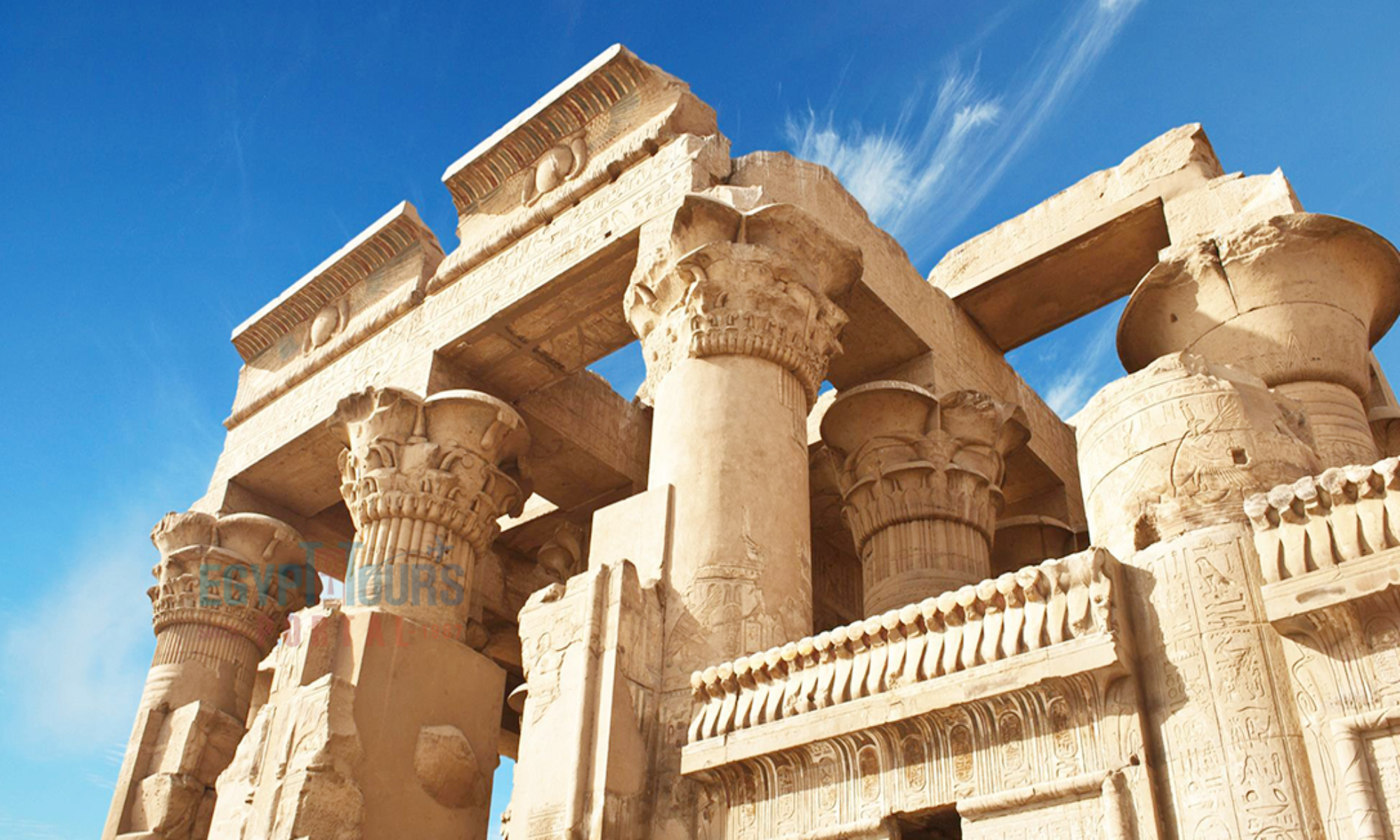
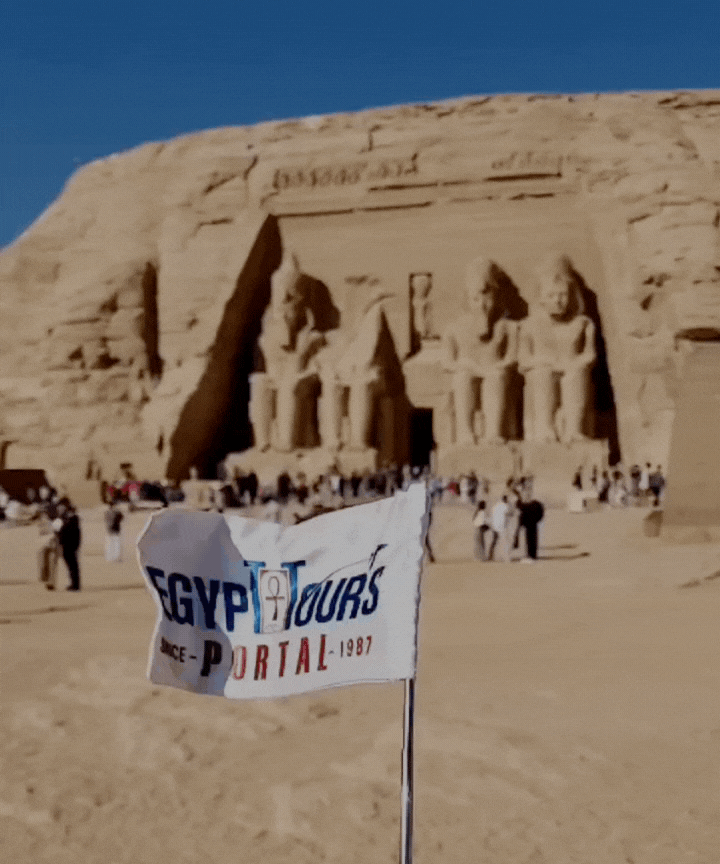
The Greco-Roman period in Egypt marked a profound shift in the region’s cultural, political, and economic landscape. This era began with the arrival of Alexander the Great in 332 BCE and extended through the Ptolemaic Dynasty and Roman rule, spanning nearly a thousand years. During this period, Egypt, known for its ancient temples, traditions, and knowledge, became a central province in the empires of the Greeks and Romans.
This period introduced new ideas, religions, and governance, shaping Egypt into a vibrant cultural melting pot that blended Egyptian, Hellenistic, and Roman elements, leaving an enduring legacy in art, language, and architecture.

The decline of ancient Egyptian civilization was a long process marked by periods of cultural stagnation, political fragmentation, and foreign invasions that disrupted the stability and unity of the once-powerful nation. After the ancient Egyptian New Kingdom’s height in the second millennium BCE, the Third Intermediate Period (1069–653 BCE) saw Egypt lose much of its centralized power. Internal conflicts arose as local rulers and priests gained increasing influence over different regions, reducing the authority of the pharaoh.
This lack of unity left Egypt vulnerable to foreign powers. By the late 8th century BCE, the Nubian Kingdom of Kush briefly conquered Egypt, and soon after, a new wave of foreign domination began with the Assyrian invasions in the 7th century BCE. The Assyrians were known for their brutal military campaigns, and while they ruled only briefly, they weakened Egypt’s defenses and set the stage for future invasions.
The Achaemenid Persian Empire conquered Egypt in 525 BCE at the battle of Pelusium, marking the beginning of the first Persian period. The Persian rulers initially allowed Egypt some autonomy, but heavy taxation and cultural impositions caused resentment among the ancient Egyptians, who revolted multiple times. Persian rule continued intermittently until Alexander the Great conquered Egypt in 332 BCE. He was welcomed as a liberator, and his arrival marked the end of Egypt’s status as an independent state and the beginning of the Hellenistic period.
After Alexander’s death, his general Ptolemy I claimed Egypt and established the Ptolemaic Dynasty in 305 BCE. This dynasty, which ruled Egypt for nearly 300 years, combined Greek and Egyptian traditions. The Ptolemies respected Egyptian religious customs and even presented themselves as successors to the pharaohs. Alexandria, the new capital, became a hub of culture and trade, housing landmarks like the Great Library and the Pharos lighthouse.
However, the Ptolemies faced internal struggles, and the dynasty weakened due to infighting, economic strain, and external pressures from Rome. By the time of Cleopatra VII, the last Ptolemaic ruler, Egypt’s independence was waning. Her alliance and romance with Roman leaders Julius Caesar and later Mark Antony marked Egypt's final attempt to retain sovereignty. However, after her defeat by Octavian in 30 BCE, Egypt was annexed as a Roman province, ushering in a new era of Roman influence over Egyptian culture, economy, and society.
Explore the marvelous connection of the ancient Egyptian civilization and the ancient Hellenistic culture
Read More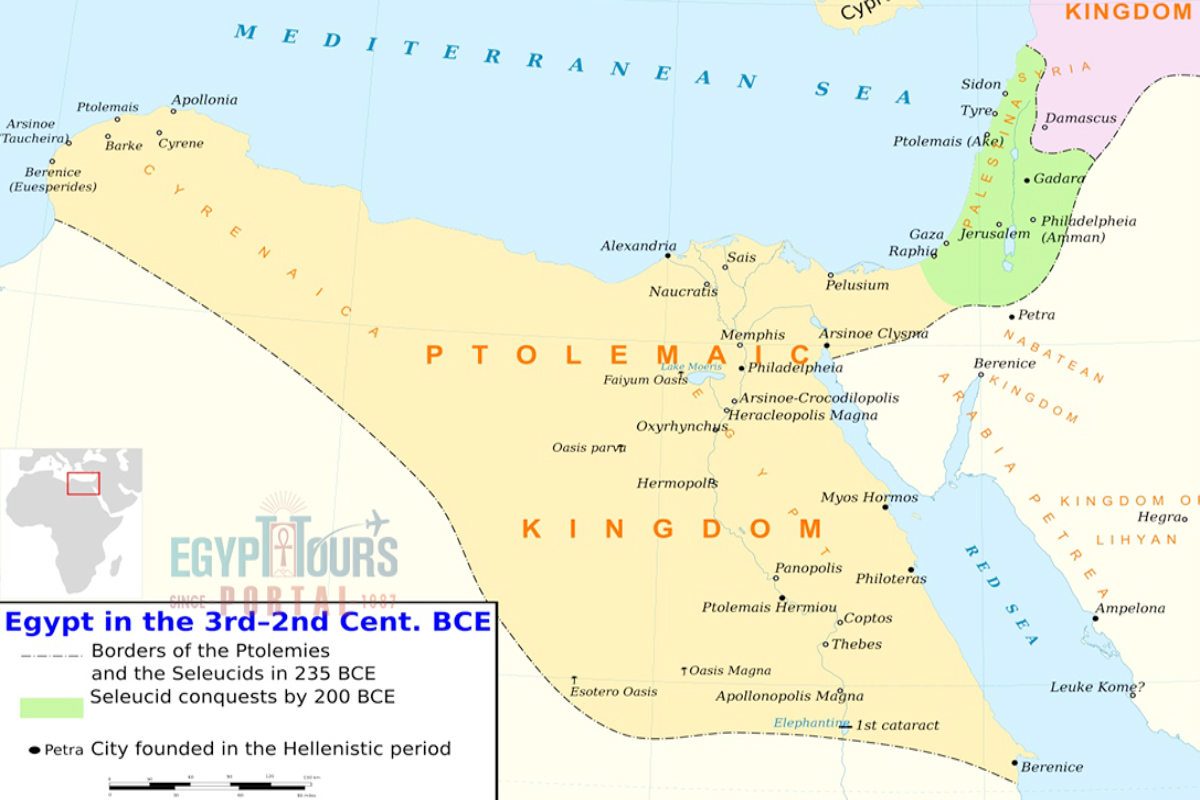
The Ptolemaic Dynasty, established by Ptolemy I Soter, one of Alexander the Great’s generals, reigned from 305 BCE until the Roman conquest in 30 BCE. The dynasty marked a period of immense cultural and economic growth for Egypt. Ptolemy I initially took control of Egypt as a satrap under Alexander’s empire, but upon Alexander’s death, he declared himself king.
Ptolemy I and his successors maintained Greek traditions, with the dynasty introducing Greek art, literature, and philosophy to Egypt. Alexandria was designed as a Greek city, becoming one of the Mediterranean’s most vibrant metropolises and attracting scholars from across the Hellenistic world.
The Ptolemies promoted a syncretic blend of Greek and Egyptian religious practices, epitomized by the cult of Serapis, a deity combining aspects of the Egyptian god Osiris and the Greek god Hades. The Ptolemaic rulers also embraced traditional Egyptian titles and images, portraying themselves as pharaohs and commissioning temples in the Egyptian style to gain the loyalty of their subjects.
Despite periods of prosperity, the dynasty eventually struggled with internal and external pressures. Feuds within the royal family led to assassinations and conflicts, weakening their authority. Egypt’s immense wealth and strategic importance attracted the attention of Rome, which intervened in Egyptian affairs repeatedly.
Cleopatra VII, the last Ptolemaic ruler, attempted to preserve Egypt’s independence through alliances with powerful Romans, but after her defeat alongside Mark Antony by Octavian, Egypt became a Roman province. The fall of the Ptolemaic Dynasty marked the end of ancient Egypt as an independent state and the beginning of Roman rule.

When Egypt was annexed by Rome in 30 BCE, it became one of the empire’s most important provinces, essential for its wealth and agricultural productivity. The region was famously known as Rome’s “breadbasket,” as Egyptian grain fed the population of Rome and fueled the empire’s economic power.
The Romans implemented new administrative and military systems, appointing a prefect of Egypt who held both civil and military authority, thus ensuring direct control over the province. Unlike other Roman provinces, Egypt was governed by officials of the equestrian order, rather than senators, highlighting its importance and the emperor’s desire to prevent senatorial interference.
Roman emperors adopted various symbols of Egyptian authority, presenting themselves as Roman pharaohs to legitimize their rule. They respected Egypt’s religious traditions and funded the construction and restoration of temples, merging ancient Roman and ancient Egyptian deities in the process. However, the high taxes imposed by the Romans led to frequent revolts, particularly among the rural population who bore the brunt of the taxation.
Roman rule remained largely stable until the empire itself began to decline, culminating in Egypt’s eventual conquest by the Rashidun Caliphate in 641 CE, which permanently transformed Egypt’s political and religious landscape.
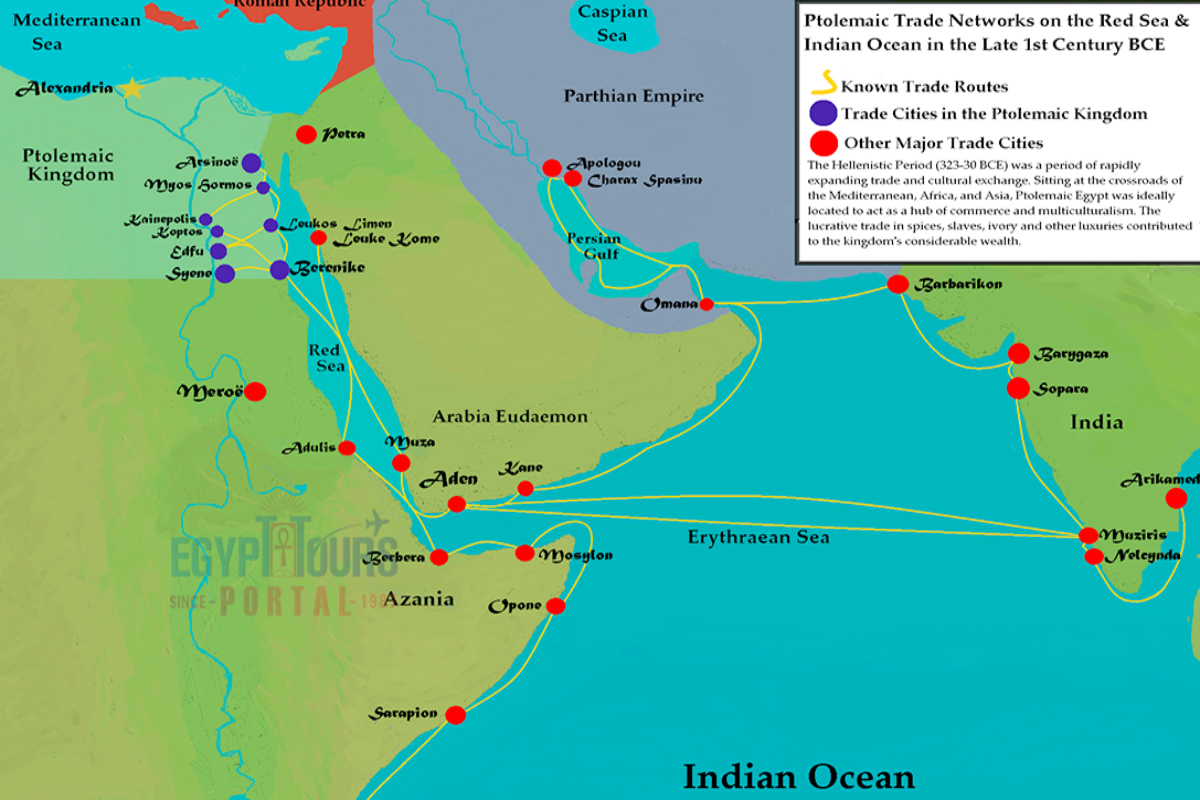
The Greco-Roman period brought significant changes to Egypt’s economy, transforming it into a complex, trade-oriented society with a strong agricultural base. During this period, Egypt was integrated into a vast Mediterranean trade network, with Alexandria emerging as a key port for the exchange of goods from Africa, Europe, and Asia. Grain was Egypt’s most valuable commodity, but the region also produced papyrus, glass, and textiles, all of which were highly valued across the Roman Empire.
The Greeks and Romans enhanced Egypt’s irrigation systems to improve agricultural yields, and Roman administrators introduced a sophisticated taxation system that collected revenues in both cash and kind. Taxes were particularly heavy on grain, and large portions of Egypt’s agricultural output were designated for export to Rome and other parts of the empire.
While the high taxation burden was challenging for Egyptian farmers, Egypt’s integration into the Mediterranean economy also created new opportunities for local and international trade. Alexandria became one of the most diverse cities in the ancient world, attracting traders, scholars, and artisans from all corners of the empire.
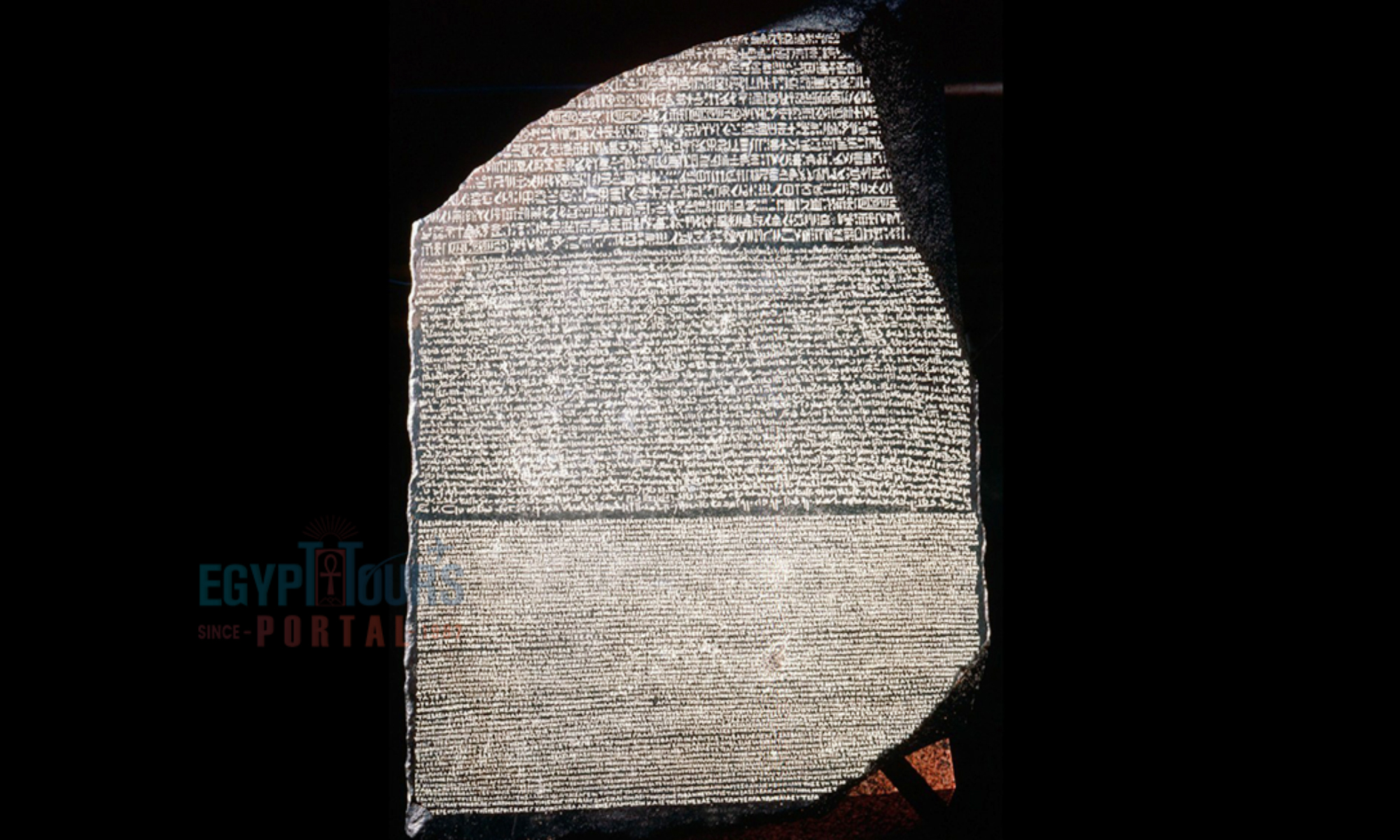
The linguistic landscape of Egypt during the Greco-Roman period was highly diverse, reflecting the region’s cultural integration with the Greek and Roman empires. Greek became the primary language of administration, business, and scholarship, especially under the Ptolemies, who promoted Greek culture and language as a unifying force. Koine Greek, a common dialect, was spoken widely across Alexandria and other urban centers, while Egyptian remained the dominant language among the rural population.
During Roman rule, Coptic emerged as a written form of the ancient Egyptian language, using the Greek alphabet with additional characters to represent Egyptian sounds. This development helped facilitate the spread of Christianity in Egypt, as Coptic became the language of the new Christian liturgy and scriptures. Many ancient Egyptian texts were translated into Greek, which furthered cultural exchange and introduced Greek-speaking residents to Egyptian religious and philosophical ideas.

Religion in ancient Egypt during the Greco-Roman period was marked by syncretism, as Greek and Roman deities merged with traditional Egyptian gods, creating new forms of worship and religious symbolism. The Greeks introduced deities like Zeus, who was often combined with the Egyptian god Amun, and the Ptolemies promoted the worship of Serapis, a god with characteristics of Osiris and the Greek god Hades. The Ptolemaic rulers used these new cults to legitimize their rule, blending Greek and Egyptian religious practices to foster unity.
Under Roman rule, the worship of the emperors as divine figures became part of Egyptian religious life, with temples dedicated to the emperor’s cult. Christianity began to spread in Egypt in the 1st century CE, especially in Alexandria, and eventually gained imperial favor under Constantine in the 4th century. By the late Roman period, Christianity became the dominant religion, and the old temples were gradually closed or repurposed, marking a significant religious transformation.
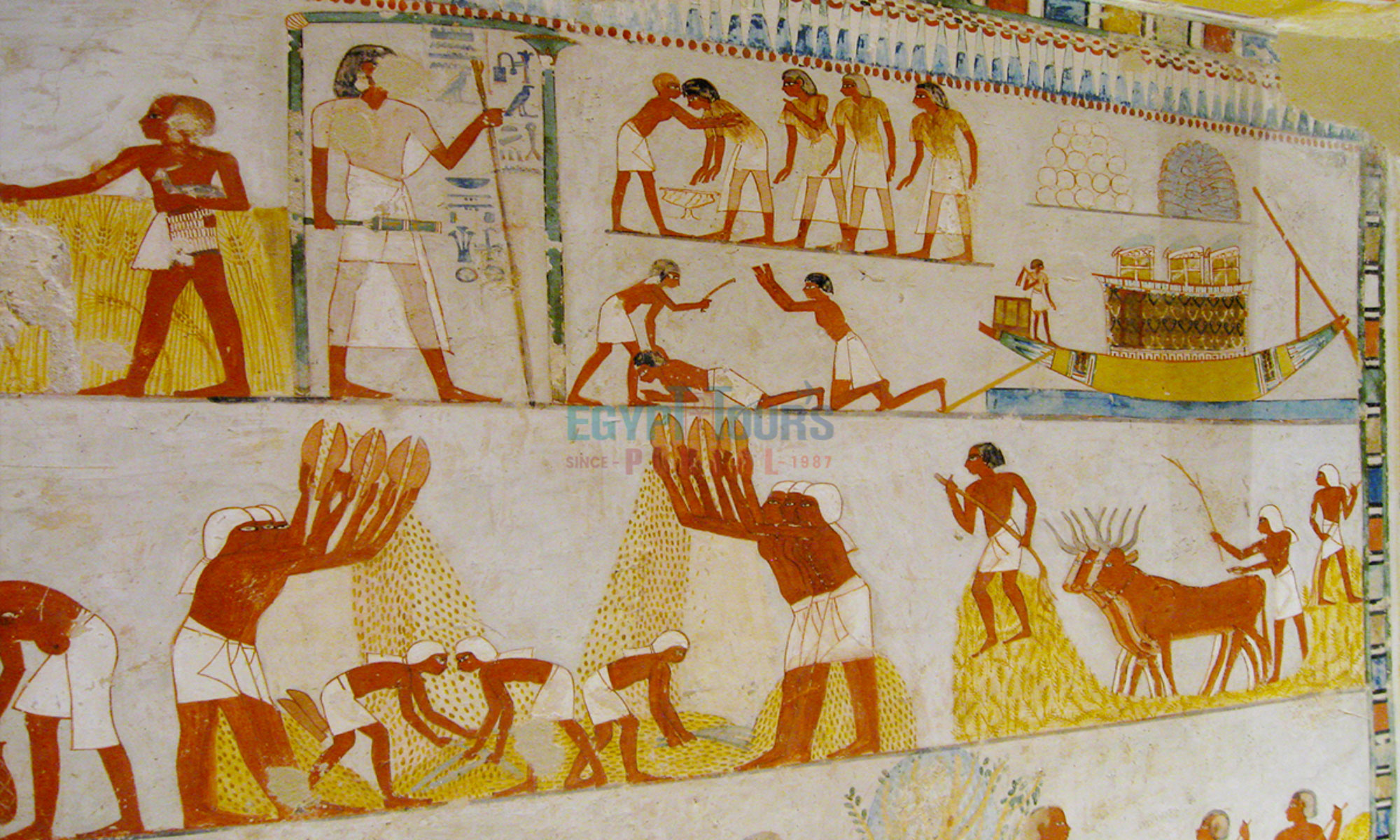
Ancient Egyptian society during the Greco-Roman period was a complex combination of ethnic and social groups, each with distinct rights and privileges. Greek and Roman citizens held higher social status and occupied influential positions within cities, particularly in Alexandria, where Greek culture dominated public life. Egyptians, who largely worked as farmers and laborers, formed the lower classes and faced significant taxes, but they were able to gain social mobility through military service or marriage.
The Romans introduced a class-based system of taxation that imposed lower rates on Greek and Roman citizens, while Egyptian villagers bore higher tax rates. Egyptian women, however, retained relatively high status compared to other parts of the empire, with legal rights that allowed them to own property, divorce, and engage in business activities, reflecting a continuity of certain ancient Egyptian customs.

Ancient Egyptian Art and architecture in ancient Egypt during the Greco-Roman period combined Egyptian, Greek, and Roman influences, creating a unique blend that symbolized Egypt’s cultural diversity. The Ptolemies constructed temples in the traditional Egyptian style but incorporated Hellenistic artistic elements, as seen in temples dedicated to deities like Serapis. During the Roman period, new architectural forms such as amphitheaters, baths, and basilicas appeared in Egypt, adding Roman features to the landscape.
Fayum mummy portraits are among the most notable artistic artifacts from this period, combining Egyptian funerary traditions with Greco-Roman painting techniques. These portraits, found in ancient Egyptian tombs, depicted the deceased in lifelike Roman styles, often with vivid colors and realistic expressions, exemplifying the blend of Egyptian and Greco-Roman artistic traditions.

Several notable rulers left a profound impact on Egypt during the Greco-Roman period. Ptolemy I, Alexander the Great’s general, founded the Ptolemaic Dynasty and established a legacy of Greek rule that lasted for centuries. Cleopatra VII, the last Ptolemaic ruler, is famously known for her relationships with Julius Caesar and Mark Antony, which represented her attempts to preserve Egypt’s independence.
After her defeat, Augustus Caesar became the first Roman emperor to govern Egypt, followed by rulers like Hadrian, who founded the city of Antinoöpolis. Each ruler contributed to Egypt’s complex cultural landscape, blending Egyptian traditions with Greek and Roman influences.

Numerous ruins from the Greco-Roman period remain in Egypt, illustrating the architectural grandeur of the era. The Serapeum of Alexandria, dedicated to the god Serapis, and Pompey’s Pillar are among Alexandria’s most famous ruins. The Temple of Dendera and the theater at Kom El Dikka reflect the blend of Greek and Egyptian styles under the Ptolemies and Romans. Fayum mummy portraits, discovered in tombs around the Fayum region, provide unique insights into Greco-Roman funerary practices, and the city of Antinoöpolis, founded by Hadrian, showcases the fusion of Greek, Roman, and Egyptian architectural elements.

The decline of the Greco-Roman period in Egypt was marked by internal unrest, economic challenges, and the weakening of Roman power due to pressures from external invasions and shifts in religious beliefs. The rise of Christianity, formally adopted by Emperor Constantine, transformed the religious landscape, leading to the closure of many ancient Egyptian temples.
The Sassanian Empire briefly occupied Egypt in 618 AD, further destabilizing the region. By 641 AD, Egypt was conquered by the Rashidun Caliphate at the hands of Amr Ibn Al As, ending nearly a millennium of Greco-Roman plus Coptic influence. This conquest marked the beginning of a new Islamic era in Egypt’s history, redefining its cultural, religious, and political identity.
The Influence of the Greco-Roman period on the landscape of Egypt is life-changing, as everyone on their Egypt vacation and nile cruise will come to face several magnificent structures filled with enchanting artifacts and art that convey a very interesting hybrid culture containing the essence of Egyptian, Greek, and Roman.
Private 4 Days Cairo Tour Packages for Indian Travelers 4 days Cairo Egypt Tour pack...
Tour Location: Cairo – Giza...
5 Days Cairo and Alexandria Tour Package For Indian Travelers 5 days Cairo and Alexa...
Tour Location: Cairo/Giza/Alexandria...
6 Days Cairo, Luxor & Aswan Tour Package For Indian Travelers 6 days Cairo, Luxo...
Tour Location: Cairo/Giza/Aswan/Luxor...
Amazing 7 Days Cairo and Hurghada Holiday for Indian Travelers 7 Days Cairo & Hu...
Tour Location: Cairo – Giza – Hurgh...
Egypt remained under Greco-Roman rule for nearly a thousand years, from Alexander the Great’s conquest in 332 BCE until the Muslim conquest in 641 CE.
The Greeks were drawn to Egypt for its wealth, strategic location, and resources. Alexander sought to expand his empire, while later Greek settlers and Ptolemaic rulers developed Egypt as a major trade and cultural center.
While Egypt was heavily influenced by Greek culture under the Ptolemies, it was not technically a Greek colony. The Ptolemies established a Hellenistic kingdom that blended Greek and Egyptian elements, with Alexandria as a center for Greek culture.
Egyptians today are primarily of native Egyptian descent, but many Greeks migrated to Egypt during the Ptolemaic period. However, the long history of intermarriage, trade, and cultural blending has left a mark on Egyptian society.
Yes, the Romans fought in Egypt, notably during Octavian’s conquest against Cleopatra and Mark Antony in 30 BCE, which resulted in Egypt’s annexation as a Roman province.
The Romans saw Egypt as an exotic land with immense resources and ancient knowledge. It was prized for its grain, and many Roman emperors admired Egyptian culture, integrating Egyptian religious practices into Roman life and architecture.
The entire country of Egypt deserve to be explored with its every heavenly detail but there are places that must be seen before any other such as the breathtaking Hurghada's red sea, The wonders of Cairo the pyramids of Giza, the great sphinx, the Egyptian Museum, Khan El Khalili Bazaar, the wonders of Luxor like Valley of the Kings, Karnak & Hatshepsut temple and the wonders of Aswan such as Abu Simbel temples, Philea temple, Unfinished obelisk and The Wonders of Alexandria like Qaitbat Citadel, Pompey's Pillar and Alexandria Library. Read more about the best places to visit in Egypt.
If you want to apply for a Visa On Arrival that lasts for 30 days then you should be one of the eligible countries, have a valid passport with at least 6 months remaining and pay 25$ USD in cash, as for the E-Visa for 30 day you should have a valid passport for at least 8 months, complete the online application, pay the e-visa fee then print the e-visa to later be presented to the airport border guard. You could also be one of the lucky ones who can obtain a free visa for 90 days. Read more about Egypt travel visa.
Egypt has a variety of delicious cuisines but we recommend “Ful & Ta’meya (Fava Beans and Falafel)”, Mulukhiya, “Koshary”, a traditional Egyptian pasta dish, and Kebab & Kofta, the Egyptian traditional meat dish.
The best time to travel to Egypt is during the winter from September to April as the climate becomes a little tropical accompanied by a magical atmosphere of warm weather with a winter breeze. You will be notified in the week of your trip if the Climate is unsafe and if any changes have been made.
You should pack everything you could ever need in a small bag so you could move easily between your destinations.
We have been creating the finest vacations for more than 20 years around the most majestic destinations in Egypt. Our staff consists of the best operators, guides and drivers who dedicate all of their time & effort to make you have the perfect vacation. All of our tours are customized by Travel, Financial & Time consultants to fit your every possible need during your vacation. It doesn't go without saying that your safety and comfort are our main priority and all of our resources will be directed to provide the finest atmosphere until you return home.
You will feel safe in Egypt as the current atmosphere of the country is quite peaceful after the government took powerful measures like restructuring the entire tourist police to include all the important and tourist attractions in Egypt. Read more about is it safe to travel to Egypt.
Wear whatever feels right and comfortable. It is advised to wear something light and comfortable footwear like a closed-toe shoe to sustain the terrain of Egypt. Put on sun block during your time in Egypt in the summer to protect yourself from the sun.
The best activity is by far boarding a Nile Cruise between Luxor and Aswan or Vise Versa. Witness the beauty of Egypt from a hot balloon or a plane and try all the delicious Egyptian cuisines and drinks plus shopping in old Cairo. Explore the allure and wonders of the red sea in the magical city resorts of Egypt like Hurghada and many more by diving and snorkeling in the marine life or Hurghada. Behold the mesmerizing western desert by a safari trip under the heavenly Egyptian skies.
There are a lot of public holidays in Egypt too many to count either religious or nation, the most important festivals are the holy month of Ramadan which ends with Eid Al Fitr, Christmas and new years eve. Read more about festivals & publich holidays in Egypt.
Egypt is considered to be one of the most liberal Islamic countries but it has become a little bit conservative in the last couple of decades so it is advised to avoid showing your chest, shoulders or legs below the knees.
Arabic is the official language and Most Egyptians, who live in the cities, speak or understand English or at least some English words or phrases. Fewer Egyptians can speak French, Italian, Spanish, and German. Professional tour guides, who work in the tourism sector, are equipped to handle visitors who cannot speak Arabic and they will speak enough English and other languages to fulfill the needs of all our clients.
The fastest way is a car, of course, a taxi. If you are in Cairo ride a white taxi to move faster or you could board the fastest way of transportation in Egypt metro if the roads are in rush hour.
The temperature in Egypt ranges from 37c to 14 c. Summer in Egypt is somehow hot but sometimes it becomes cold at night and winter is cool and mild. The average of low temperatures vary from 9.5 °C in the wintertime to 23 °C in the summertime and the average high temperatures vary from 17 °C in the wintertime to 32 °C in the summertime. The temperature is moderate all along the coasts.
It is the home of everything a traveler might be looking for from amazing historical sites dating to more than 4000 years to enchanting city resorts & beaches. You will live the vacation you deserve as Egypt has everything you could possibly imagine.









